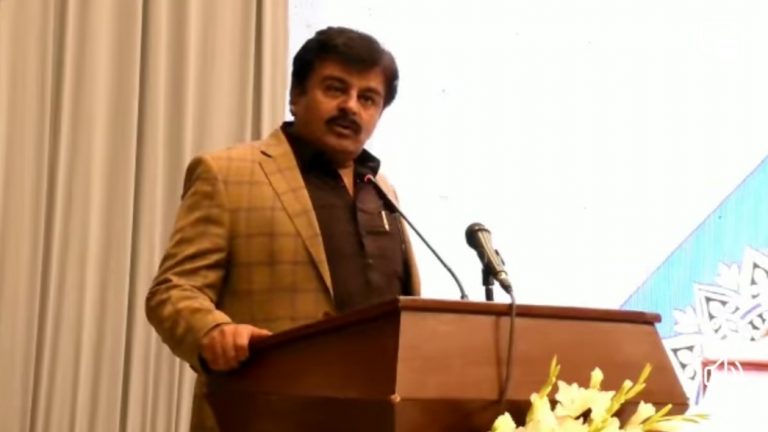
The government has created new 700 vacancies, which will only be offered to B.Ed. degree holders having cleared the licensing exam – Sindh Education Minister
Karachi, Sindh
Sindh Cabinet has approved on Thursday a new teaching license policy, aimed at attracting talented youth to the teaching profession and raising the status of the profession.
This reform aims to bring the same respect to the teaching profession as enjoyed by other skill-based professions, including medicine, accounting, law and engineering. New entrants to the field of teaching will both be required and incentivized to get professional training before seeking jobs.
Sharing his views, Provincial Minister of Sindh for Education, Culture, Tourism and Antiquities, Syed Sardar Ali Shah, said, “Conceptualizing and bringing the teaching license policy to life has not been easy. However, I am grateful to AKU-IED, STEDA, Durbeen and all other partners who have worked tirelessly to make this policy a possibility. The success of the next generation of teachers and students ultimately depends on its smooth implementation.”
Sindh government has already taken the first step toward rolling out the new policy. 700 new vacancies have been created for Elementary School Teachers (eligible to teach grades 1-8) across Sindh at BPS-16. Previously, Junior Elementary School Teachers (JEST) were being inducted at BPS-14 and were required to have completed graduation in any field. These new 700 vacancies will only be offered to graduates of the B.Ed. degree program who have also cleared the licensing exam.
“The introduction of the teaching license policy by the Sindh government marks a significant achievement in the field of education,” he said.
The provincial minister added that Sindh is the only province which introduces teacher’s license policy. This policy represents a proactive approach by the government to address the critical need for qualified and skilled teachers in the province. By recognizing the value and importance of effective teaching, the government has taken a bold step towards improving the quality of education in Sindh.
The policy not only establishes a minimum standard for new teachers but also elevates the teaching profession by aligning it with other esteemed professions. This achievement demonstrates the government’s commitment to investing in education and its dedication to providing students with the best possible learning experiences. With the teaching license policy in place, the Sindh government has laid the foundation for a more robust and professional teaching workforce, which will have a positive and lasting impact on the educational landscape of the province. A growing body of research clearly establishes the value of effective teachers. Econometric research from the past decade shows that effective teachers can deliver three times the learning in a single academic year than ineffective teachers can.
Teacher licensing is one of the ways to do so. The teaching license sets a minimum standard for new entrants, which will raise the status of the teaching profession in public perception. This has been seen in several other professions, both in Pakistan and globally. In the short-term, improved public perception provides the justification for raising teachers’ salaries. Long term, it helps attract talented youth to the profession. The policy preparation was preceded by a year-long research and consultation led by the Aga Khan University’s Institute for Educational Development (AKU-IED) which culminated in a White Paper which was jointly launched by AKU-IED, Sindh Teachers Education Development Authority (STEDA) and Durbeen in June 2022. Consultations were held among a wide range of stakeholders – Pakistani universities, school management, teachers, teachers’ unions, parents and students. Scholars from several other institutions, including Ziauddin University, contributed to the policy writing efforts.
Under the new policy, Bachelor of Education (B.Ed.) graduates can now apply to take a licensing exam. This licensing exam will assess both content knowledge as well as pedagogical knowledge. Upon passing the exam, they will be awarded teaching licenses in one of the three categories – elementary (Grades 1-8), primary (Grades 1-5) and secondary (Grades 6-12). Existing, full-time, government school teachers can choose to continue employment as per status quo, or if they meet the requirements under the policy, may opt to apply for the licensing exam and expedite their promotions. Contractual teachers in government schools, who meet the requirements, can expedite regularization through the licensing process. This reform takes a unique position in the history of education in Pakistan. Most reforms have been driven and funded by the prescriptions of donor agencies. They have seen mixed results and have generally died out once donor support ends. In comparison, this teacher licensing policy has been initiated by the government of Sindh and has been developed in consultation with Pakistani academia, teachers, unions and other stakeholders. (PR)
________________
[…] Related report: Sindh govt. introduces Teaching License Policy […]
[…] Related news: Sindh govt. introduces Teaching License Policy […]